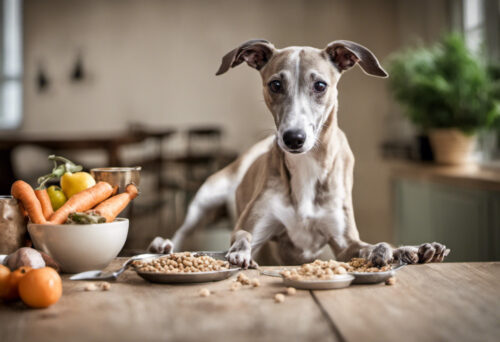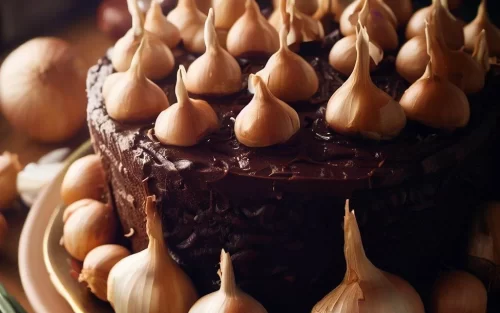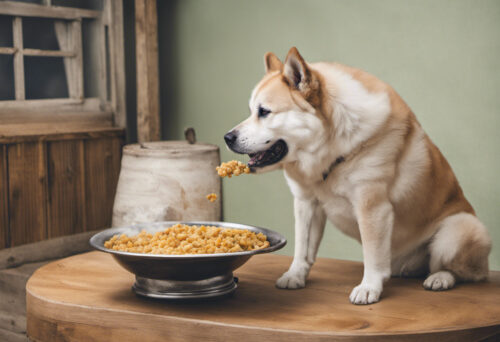Get ready to unleash the secret to your whippet’s vibrant health and boundless energy. Our comprehensive guide to whippet diet and nutrition is your key to ensuring your speedster’s nutritional requirements are met in every bit. Bright eyes, a shiny coat, and a bushy tail aren’t just a result of love and cuddles. Food plays a pivotal role too! Read on to discover the dos and don’ts when it comes to feeding your precious pooch.
Understanding Whippet Nutrition
Known for their unmatched agility and speed, whippets are a breed apart. To keep their muscles flexible and lean, lots of energy is needed which must be optimally replenished through a diet that’s packed with the right type of nutrients. The usual macronutrients – proteins, carbohydrates, and fats – are essential, but understanding their ratios and sourcing is also crucial.
The Importance of Protein
Protein is the most important macronutrient for any species, and whippets are no exception. Protein helps build those beautifully toned muscles and maintains their ongoing repair and growth. The ideal source is good quality meat, with chicken, fish, turkey, and beef being great choices. Remember, the higher the quality of protein, the lesser the load on your whippet’s kidneys.
Energy Boosting Carbohydrates
For the whip-fast sprinters, energy-dense carbohydrates are essential. They not only act as the primary energy source but also aid in digestion and nutrient absorption. Complex carbohydrates found in grains like rice, oats, and barley are perfect, providing a steady energy release to keep your whippet active and happy.
Necessary Fat: The Good and The Bad
Not all fats are created equal. Your whippet’s dietary needs include beneficial fats, found in food sources like fish oil and flax seed oil, which are packed with omega-3 and omega-6 fatty acids. These enhance your dog’s skin health, reduce inflammation and support cognitive function.
Keeping it Balanced
Balance is the key when it comes to whippet diet and nutrition. Too often, whippet owners get the protein-carbohydrate-fat ratio wrong. An adult whippet’s diet should be roughly 20% protein, 30% carbohydrates, and 50% vegetables and fruits with a smidgen of healthy fats. While adjusting your pooch’s diet, remember to do it gradually to avoid upsetting their digestive system. For more guidance on feeding ratios, check the guidelines provided by the Dog Food Advisor.
Foods to Avoid
While we’re exploring the good stuff, don’t disregard the foods that can be toxic to your whippet. Certain foods like chocolate, onions, grapes, and some sweeteners can severely harm your dog’s health.
Don’t forget, these are general guidelines and every dog is unique. To make sure your whippet’s nutritional needs are accurately met, it’s best to liaise with a trusted vet for a personalized diet plan.

What about Vitamins and Minerals?
Adding to the macronutrient pot, your whippet also requires a variety of vitamins and minerals for optimal health. These tiny heroes aid metabolic activity, bone development, and many more integral functions. The diet should include vitamins A, D, E, K, B-group vitamins and essentials minerals like calcium, potassium, magnesium, etc.
Water: Don’t Neglect the H2O
Hydrate! Hydrate! Hydrate! Whippets require ample water, especially while running or doing any strenuous physical activity. Fresh clean water promotes overall organ function and digestion. It also helps in temperature regulation. Make sure you have clean, fresh water available for your whippet at all times.
Commercial Dog Food vs. Homemade Diets
Many whippet parents are torn between feeding their pooch commercial dog food or a homemade diet. Both have their benefits and downsides. While commercial food is convenient and often nutritionally balanced, homemade food gives you control over every ingredient that you include. Online forums like Your Purebred Puppy could provide insights from other whippet owners who are facing similar dilemmas.
Judging the Quality of Commercial Dog Food
Purchasing commercial dog food? Remember to check the quality. The first listed ingredient should be a high-quality protein source. Avoid products that use generic terms like ‘animal fat’, or contain added sugars, artificial colours, and preservatives. Websites like the Dog Food Advisor can help you compare brands and check product recalls.
Raw Meals: Are they worth it?
Some whippet owners swear by raw diets and others tend to avoid them. Feeding raw meat can help maintain your pup’s shiny coat and strong teeth. However, it can also lead to bacterial infections if not properly processed. If you decide to go this route, it is best to follow a diet plan approved by your vet or a canine nutritionist such as those at the American College of Veterinary Nutrition.
Conclusion
A healthy nutritional balance is the foundation for your whippet’s long, healthy life. The love for these extraordinary dogs doesn’t just stop at cuddles and playtime, it extends to their bowls as well. Remember, consulting with a vet or a canine nutritionist is always the best way to ascertain your whippet’s specific dietary needs.

Whippet Puppies vs. Adult Dogs: Nutrition Needs
Different life-stages demand different nutritional needs. Puppies require more protein compared to their adult counterparts due to their rapid growth and development. The Whole Dog Journal suggests that during their first year, puppies should be fed diets that are high in both protein and fat. But remember, as your whippet matures, their diet should be adjusted to avoid unnecessary weight gain.
Senior Whippets: Special Dietary Needs
As your whippet enters its golden years, you may notice changes in its activity levels or body condition. Ageing dogs often require fewer calories but more of certain vitamins and minerals. Some might develop specific health conditions which necessitate dietary changes. Consult with a veterinary nutritionist or your local vet to ensure your senior whippet’s diet is tailored to its changing needs.
Treating Your Whippet: What’s Safe?
Let’s face it – who can resist those pleading eyes begging for a bite of your dinner? Treats can be an effective training tool as well. However, remember to choose dog-friendly treats that aren’t detrimental to your whippet’s health. And most importantly, moderation is key – treats should only constitute around 10% of your dog’s daily caloric intake. For healthy homemade treat ideas, you can refer to this guide by the American Kennel Club.
Store-Bought Treats: What to Avoid
With such a plethora of dog treats available, it can be challenging to decipher which ones are appropriate for your whippet. Steer clear from treats laden with artificial preservatives, colourings or fillers, or those with high-fat or sodium content. Check out the Canine Journal’s picks for the best all-natural dog treats on the market.
Supplements for Whippets: Yay or Nay?
While an optimal diet should provide all the essential nutrients your whippet needs, there might be situations where supplements can help, particularly for joint health, skin and coat condition, or during specific life stages such as puppy growth or geriatric care. The Bark has an excellent article on deciding if your dog needs supplements.
Choosing the Right Supplements
Opt for supplements made specifically for dogs and always consult your vet before introducing any new supplement into your whippet’s diet. The National Animal Supplement Council provides a list of reputable brands for you to explore.
Parting Words
Whippet diet and nutrition isn’t overly complicated, it just requires a little research and a great deal of love. It’s about making informed decisions for your whippet’s wellbeing, not just filling up their bowl. This comprehensive guide coupled with advice from your vet will ensure your whippet enjoys a rich, delicious diet that caters to all its nutritional needs. After all, a well-fed whippet is a happy whippet!



